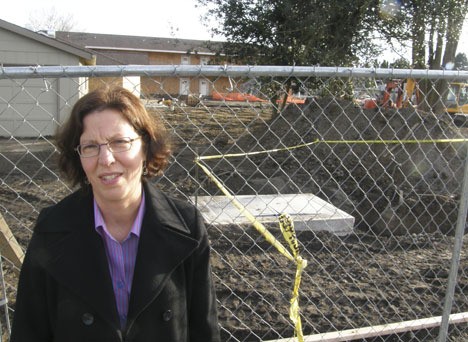The woman stepped onto the bus and tried to explain what the affordable housing and programs offered by the Federal Way-based Multi-Service Center have done for her, how far she’s come – but deep emotion checked her.
A case worker told her story: a long ragged history of drug abuse, homelessness, hopelessness and crime.
Today, life for the woman and her two boys, two years now at the low-income White River Apartments in Southeast Auburn, is vastly different after partaking of the housing, employment training and education opportunities.
Ahead of her is a career as a substance abuse counselor.
“I’ve come a long way, and I have the Multi-Service Center to thank for that,” the woman told the busload of officials on the Affordable Housing Opportunity Bus Tour in Kent and Auburn put on by the Housing Development Consortium, a Seattle-based non-profit agency.
The idea for the bus tour, one of four scheduled, was to offer council members, human service commissioners and people affiliated with human services some successful affordable housing models in their cities and to educate them on ways cities can participate in the creation of affordable housing.
“It takes non-profits and different funding sources, but cities play a direct part through their zoning codes and land-use policies and maybe contribute capital or operating funds,” said Karen Williams, suburban outreach director with the Housing Development Consortium.
“The big thing is political will; are they willing to show support for different types of housing and awareness of gaps in affordable housing?” Williams added.
The tour included a stop at Katherine’s House in Kent. Run by Catholic Community Services, Katherine’s House provides transitional housing and support services for single women in recovery, including intensive case management, staff support, employment support and individualized goal plans. Drug court clients and clients leaving the Norm Maleng Regional Justice Center are given priority.
The bus also stopped at the future Auburn Valley Cities Landing, a two-story building with 25 units of affordable housing for the homeless that Valley Cities Counseling and Consultation began building last August south of its facility on I Street Northeast.
“It’s for people from the Auburn community who have fallen on hard times and are homeless and have mental health problems,” said Faith Richie, chief executive officer of VCCC. “We’re particularly trying to serve homeless veterans. It will be single adults. There won’t be kids living here.”
The two-story building will offer 400-square-foot residential apartments and a community room and offices. It will open in August.
“The studios will seem small to most people, about the size of a two-car garage, but people who come from homelessness don’t have a lot of stuff and they find it easier. We’ve looked at other projects and found they do better with smaller spaces,” Richie said.
Funding for the $5.6 million project has been provided by King County, the State Housing Trust Fund and Community Development Block Grant funds provided by the City of Auburn and other sources.
Richie said affordable housing is “an important part of a healthy community.
“It takes collaborate partnerships to make it work and a long-term commitment because it’s complicated,” she said.
“You have to have services, you’ve have to find a neighborhood that will accept it, you have to work with the cities to solve zoning issues, you have to get the funding. But when you pull these projects off, it makes a huge difference in people’s lives and the lives of the people around them. It has this wonderful ripple effect.”


